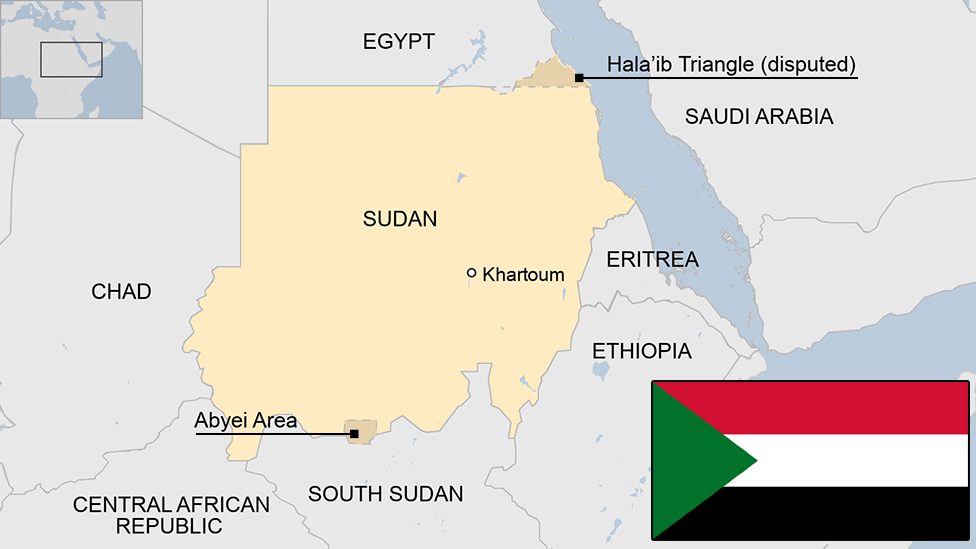Sudan crisis: 'Million-strong march' for civilian rule
- Published
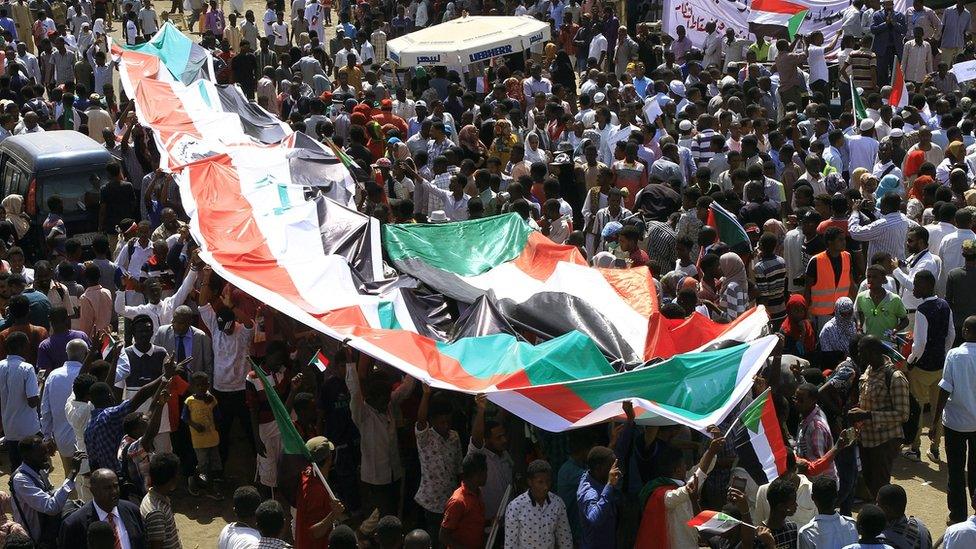
Thousands have gathered in Khartoum despite resignations from Sudan's ruling military council
Thousands of protesters have filled the streets of Khartoum calling for an end to the country's military council.
Many had travelled in from across Sudan to take part in the "million-strong march" for civilian rule.
It comes despite the resignation of three controversial figures from the ruling Transitional Military Council - one of the protesters' key demands.
The three generals were seen as staunch Islamists and allies of deposed President Omar al-Bashir.
"We are in the middle of a historic moment. Any divisions will break the back of Sudan," one protester told the BBC.
"The military council is simply wasting time hoping that we will get disappointed and go home," said another.
"We have been here for four months already. We can wait for 100 years until we get what we want."
The enormous rally has been organised by an umbrella group of protesters called the Alliance for Freedom and Change.

Protesters demand justice
Mohanad Hashim, BBC Africa, Khartoum

Protesters are in an almost jubilant mood as they flock to the capital demanding civilian rule, accountability and retribution.
"Blood for blood, we will not accept blood money," some have been chanting, as well as "Bashir to ICC".
The ousted president is accused of organising war crimes and crimes against humanity in Darfur since 2003 by the International Criminal Court.
"Who gave the order to drop bombs on us?" said two tearful Darfuri women at Thursday's protest. "We want to see them brought to account."
They and other protesters view the Transitional Military Council (TCM) as part of the same machine that kept Mr Bashir in power for 30 years.
They are amassing outside the army headquarters in Khartoum directing their rage at those they hold responsible.

Many gathered outside of Sudan's army headquarters, while earlier demonstrations were held outside Egypt's embassy. Cairo hosted an emergency summit of African leaders on Tuesday, which urged Sudan's military regime to implement "democratic transition measures" within three months.
The fresh protests on Thursday come soon after a late-night meeting between the military council and leaders of the Alliance.
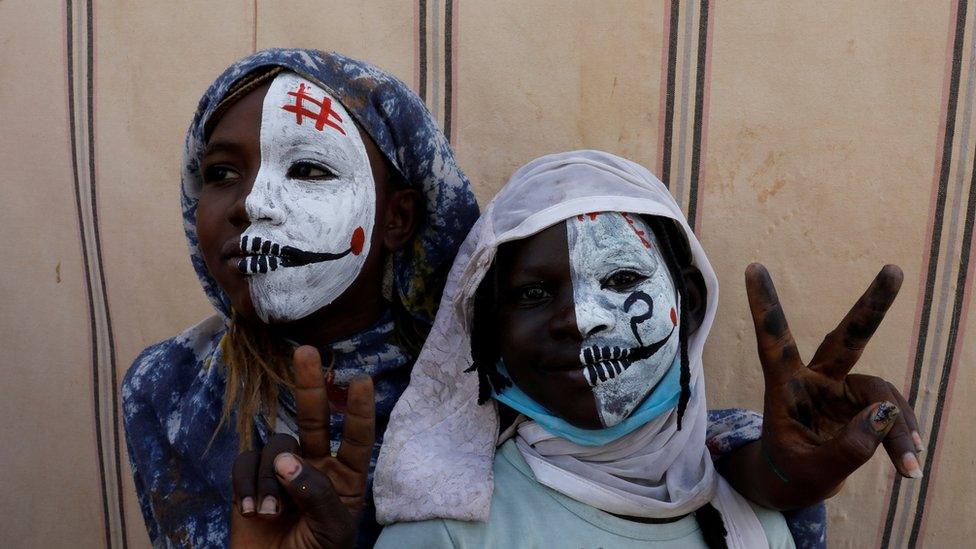
Protesters have been calling for an end to the military council, but negotiations are still continuing
At a press conference, military spokesman Lt-Gen Shamseddine Kabbashi said the two sides had reached agreement on most demands, and a joint committee would be set up to resolve outstanding disputes.
The Sudanese Professionals Association, which organised many of the initial protests against Mr al-Bashir, described the meeting as a step towards "confidence-building".
Sudan protests: The women driving change
However, protest leaders have not commented publicly since the generals' resignations were announced.
Other controversial figures remain in the military council, such as deputy leader Mohamed Hamdan Dagalo. He is a former commander of the Janjaweed militia who are accused of genocide during the Darfur conflict, which began in 2003.
- Published25 April 2019
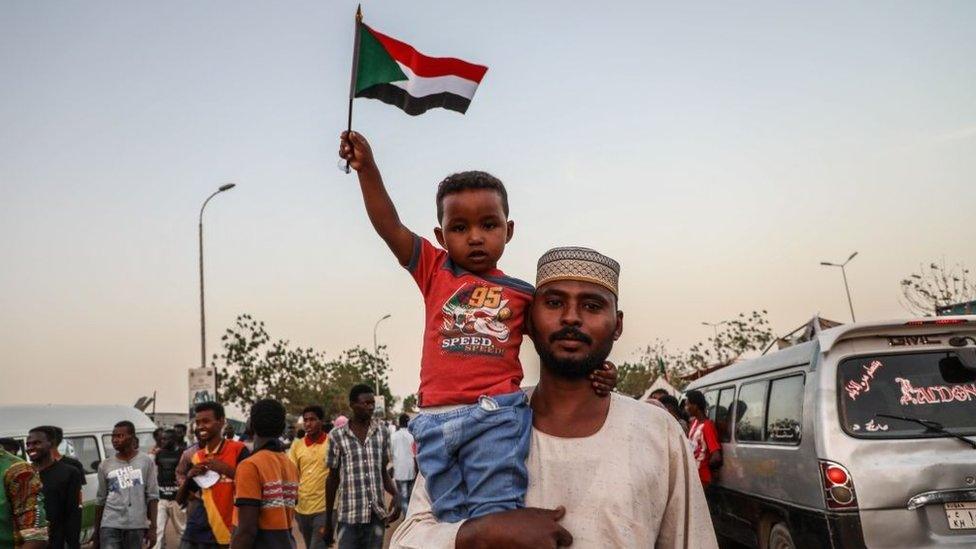
- Published18 April 2019
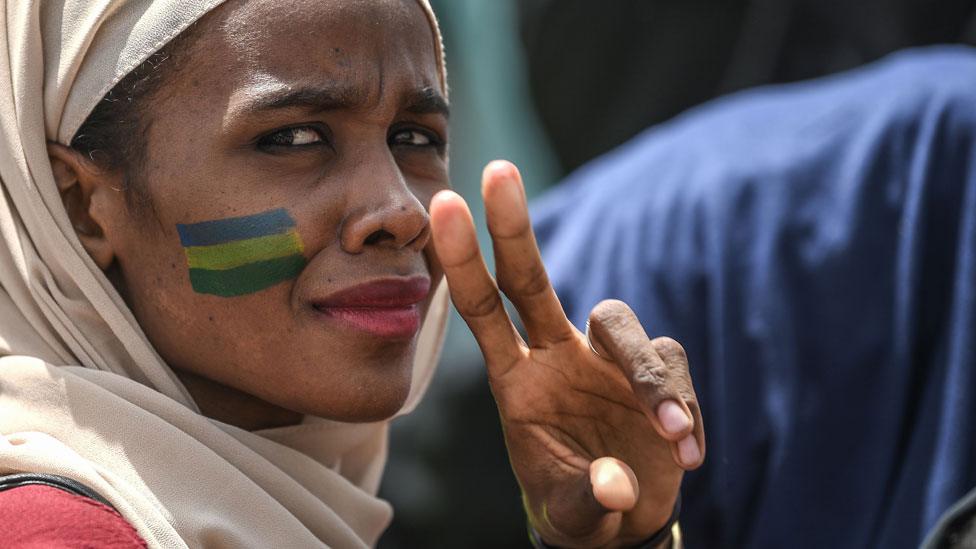
- Published25 April 2019
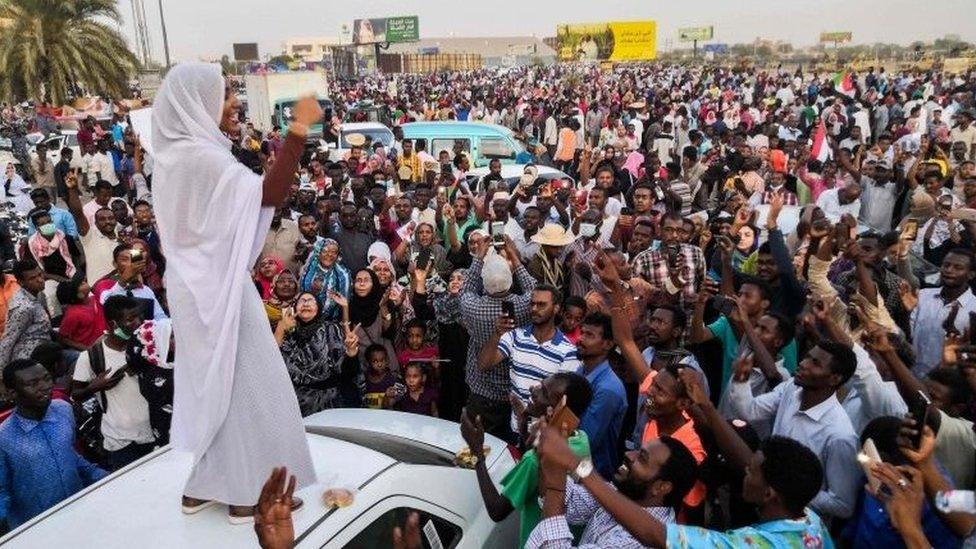
- Published24 April 2019
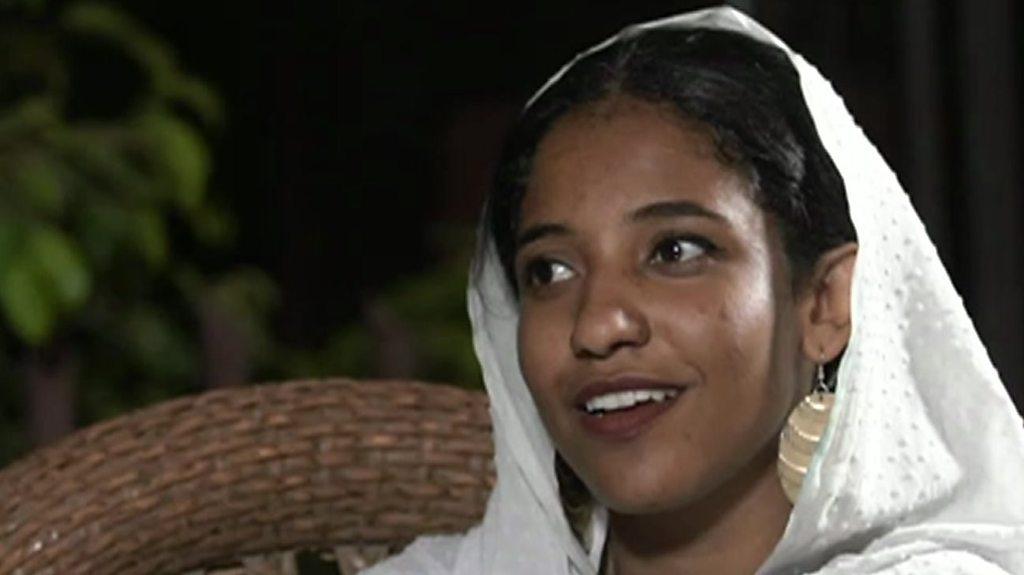
- Published1 April 2019
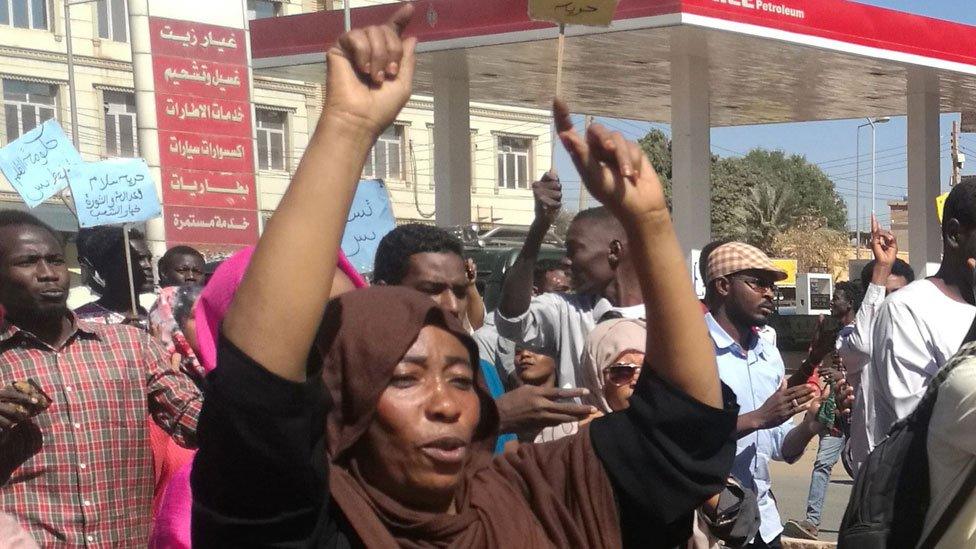
- Published20 February 2019
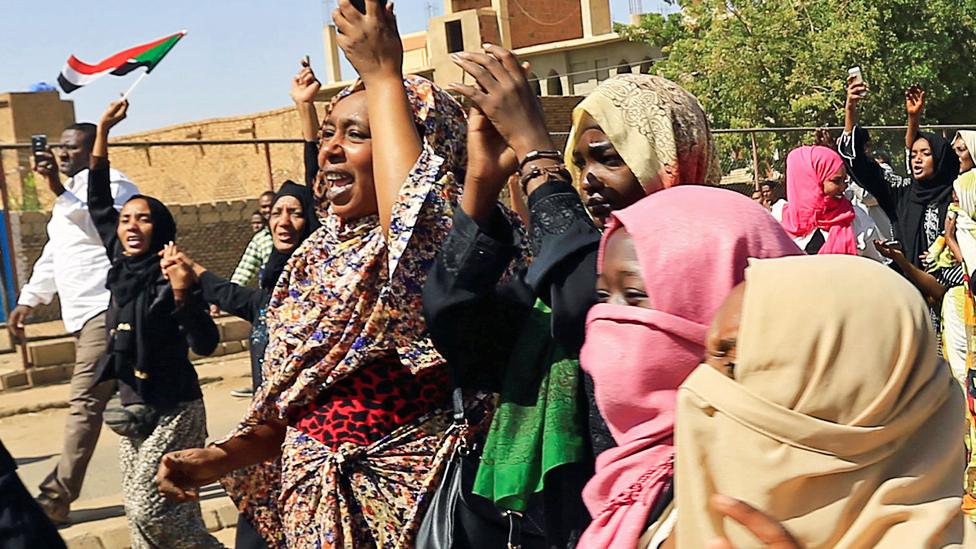
- Published12 April 2019
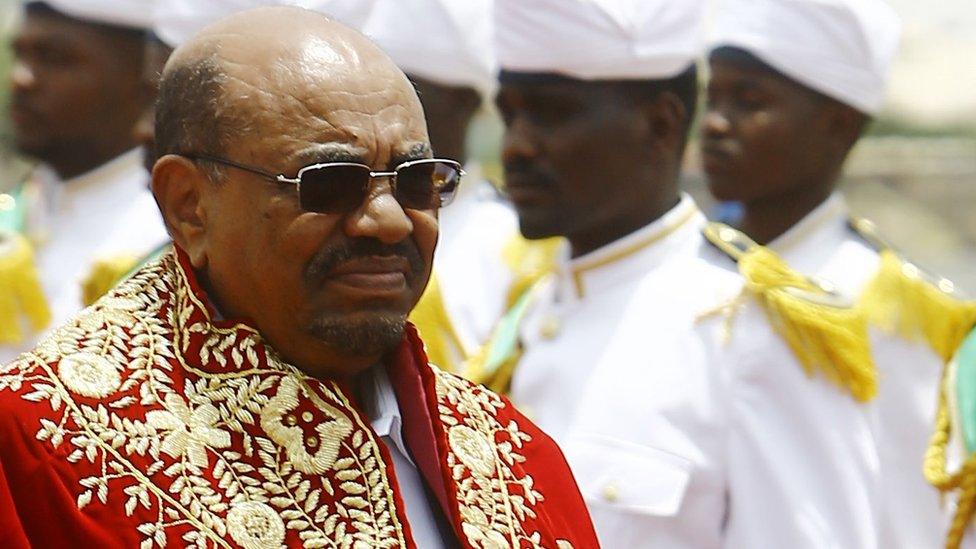
- Published13 September 2023
